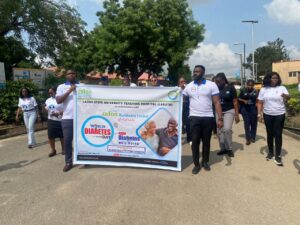
Governor Uba Sani of Kaduna State
BY NZUBE KENNETH CHIGOZIE
Kaduna State Governor, Uba Sani, has approved the Kaduna State Climate Policy, which provides a comprehensive framework to tackle the impacts of climate change, promote sustainable development and align national and international goals.
Tagged 2024 Climate Change Policy, it addresses climate extremes and is aligned with climate change policy (2021-2030).
The statement signed by Governor Sani’s spokesman, Mohammed Shehu, stated that the decision followed the decision taken by the State Executive Council in its meeting held at the Government House, Kaduna on Thursday, July 4.
This policy was developed with input from various stakeholders and supported by organizations such as ACReSAL and Lafiya Projects, to reduce greenhouse gas emissions, increase climate adaptation and integrate climate considerations into national plans.
Governor Sani emphasized that the policy will focus on public education, monitoring and sustainable development to prepare Kaduna State for climate change.
The governor also approved another recommendation of the Council for new policies to optimize and prioritize the state-owned government printing department and advance the state’s healthcare sector.
Mr Sani approved the revamping and repositioning of the state-owned government printing department as a proactive measure to ensure optimal utilisation of facilities and revenue generation. With the approval, all state ministries, departments, and agencies (MDAs) are required to use the printing department’s services for essential printing needs.
Additionally, following the State Executive Council meeting decision, Mr Sani introduced the Kaduna State Human Resources for Health Policy (HRH), designed to address gaps in the health workforce.
The policy was developed through extensive stakeholder consultations to ensure comprehensive recommendations for overcoming current challenges in the health sector.
“The Human Resources for Health Policy will serve as a framework to ensure the right number and mix of competent, motivated, and equitably distributed health workers for optimal healthcare service delivery. Its strategic objectives include maintaining an adequate number of qualified health workers and managing employment, deployment, retention, and performance effectively,” Governor Sani explained.
The statement stressed that Mr Sani’s administration remains committed to investing in human capital, environmental sustainability, and efficient state operations through the new policies.






